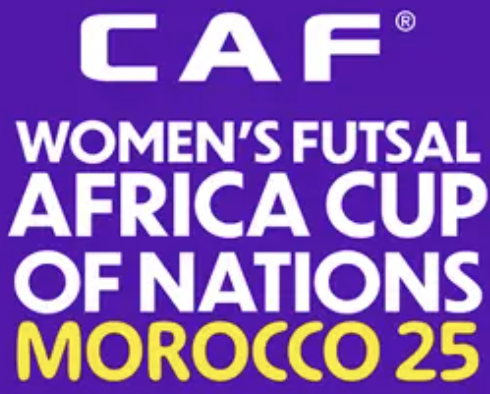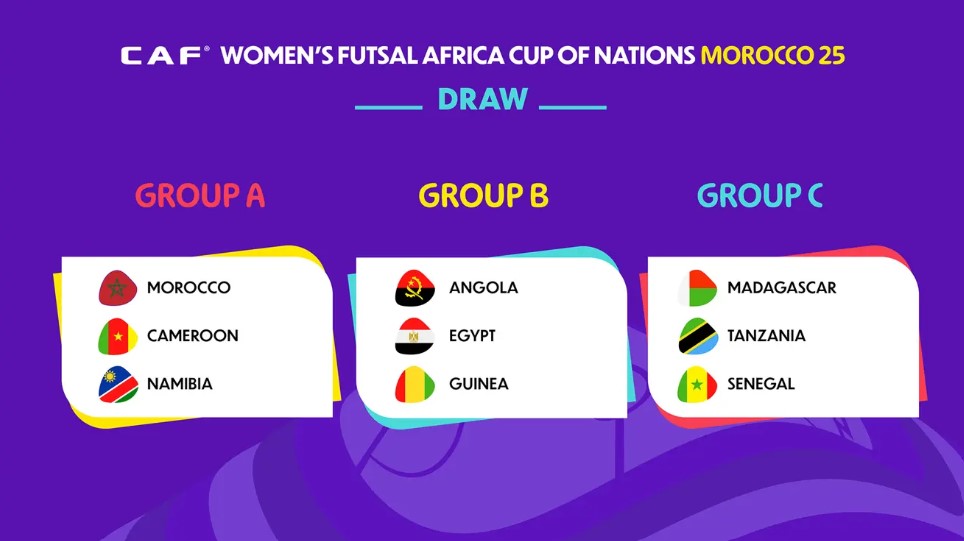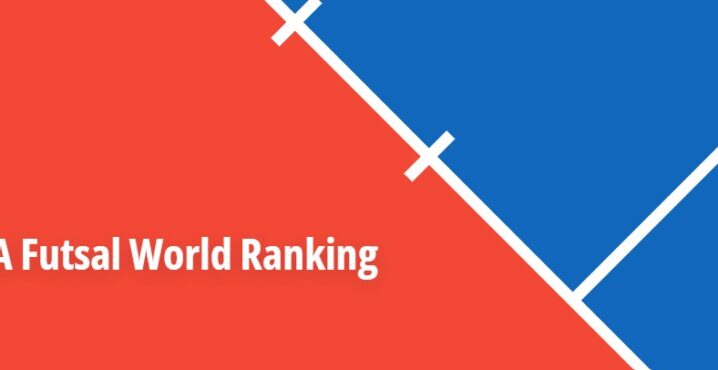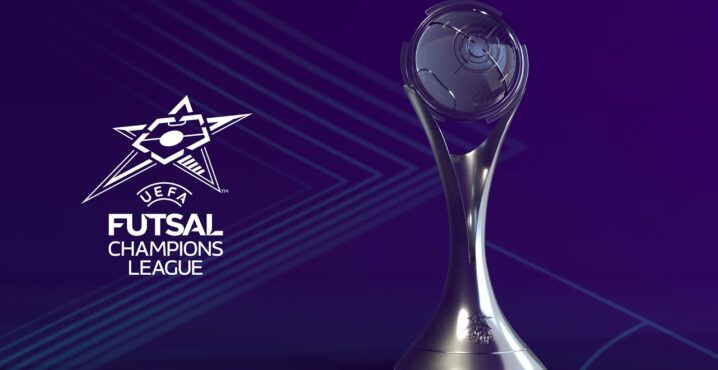Estimated reading time:4 minutes, 35 seconds
As Cameroon’s women’s futsal team prepares for history in Morocco, questions arise about the absence of other African powerhouses—and the future of the sport on the continent.
As the inaugural CAF Women’s Futsal Africa Cup of Nations kicks off in Morocco from 22–30 April, all eyes turn to a man who has given his life to the game: Louis René Epée of Cameroon. For decades, he has championed futsal with a rare devotion, and now, he stands at the edge of a new era—ready to guide his team not just into competition, but into history.
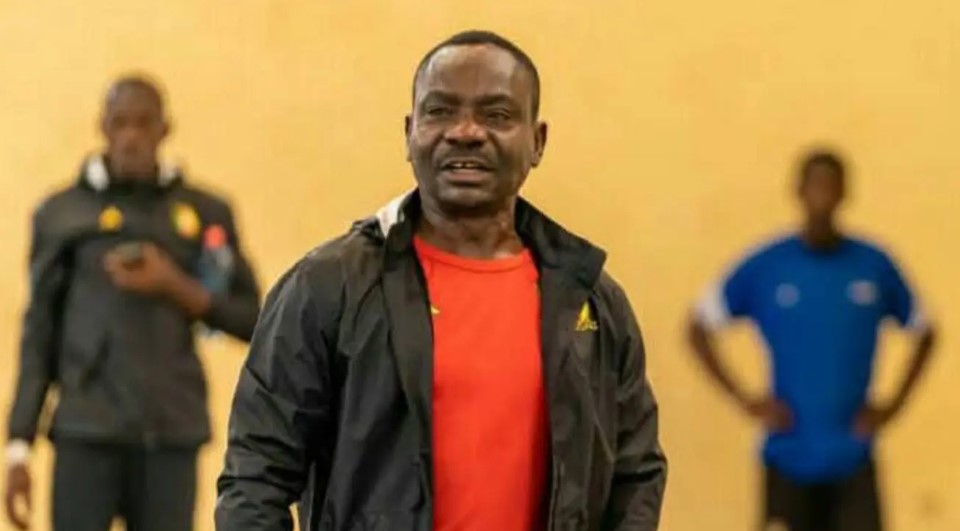
Cameroon’s Louis René Epée – Source of the image: CAF online
Epée’s passion for futsal began in 1996 at the Yaoundé stadium. From there, he built National Mfandena 98, Cameroon’s first futsal club, and sacrificed a stable job as a librarian-bookbinder to chase a dream many didn’t yet understand. Since then, he has been Cameroon’s guiding light in futsal, leading efforts at home and abroad—including the 2018 Youth Olympic Games in Buenos Aires.
(Main source: 2025 Women’s Futsal Africa Cup of Nations – Wikipedia page)
Now, as Cameroon takes the pitch in Group A alongside hosts Morocco and Namibia, the stakes are clear. “We’re not just here to participate—we’re here to win,” Epée says confidently.
But his vision stretches beyond a trophy. It’s about building something lasting, giving African women a platform, and ensuring that this first Women’s Futsal AFCON becomes a spark for real, structural change across the continent.
“We’re Workers, Still Building”
Epée is humble despite his status. “I see myself as a worker,” he says to CAF online, “still building the structure.” His players share that same spirit, arriving in Morocco with “enthusiasm, curiosity, and the hope of representing not just Cameroon but all African girls who dream of a future in this discipline.”
His squad is still growing in tactical awareness, but strong in discipline and spirit. “I’d rate us a 7 out of 10,” he says. “We’re resilient, capable, and mentally aiming for excellence.”
Their toughest match may be against Morocco, a well-structured powerhouse, but Epée is focused. “The extra days of preparation we gained when the fixture moved to the 24th could be crucial.”
Futsal as an Educational Tool
Beyond the tournament, Epée sees futsal as a tool for education, gender equality, and youth development. “It’s not just about winning. It’s about changing the narrative around women’s sport in Africa.”
So, again we must ask: With the momentum now in place, what’s stopping more nations from stepping up? Why aren’t federations recognizing the strategic opportunity futsal offers—not just for women, but for sports development overall?
And what role should CAF and FIFA play in ensuring that women’s futsal receives the visibility, funding, and institutional support it needs to thrive?
Development can’t rest on individuals alone—federations, CAF, and FIFA must play their part in institutionalizing support.
“Where Are the Others?”
As we celebrate the presence of teams like Egypt, Senegal, Tanzania, and Angola, the question naturally arises: Where are futsal teams from major footballing nations like Uganda and South Africa?
Why are some of Africa’s best-resourced football countries absent from this pioneering tournament?
And looking ahead to the 2026 Youth Olympic Games in Senegal, where futsal will once again replace traditional football—just as it did in 2018—why aren’t more African nations treating this as a golden opportunity to test the waters, gather data, and begin building structured futsal development pipelines?
The absence of major nations suggests a disconnect or missed opportunity, especially as the Youth Olympics offers exposure, competition, and a global spotlight.
A New Chapter Begins
The CAF Women’s Futsal Africa Cup of Nations is a landmark. With nine countries competing for two World Cup spots in the Philippines (November–December 2025), the eyes of the futsal world are on Africa.
Here are the tournament groups:
As the matches begin and goals are scored, one truth remains: this is just the beginning. But whether futsal grows across the continent will depend on what happens after the final whistle blows. The answers may shape not just who wins trophies, but who writes the next chapter in African sport.
So we ask again:
Where is South Africa? Where is Uganda?
Will the 2026 Youth Olympics in Senegal finally be the wake-up call?
And will more African nations use this stage to invest in the future of women’s futsal—before it’s too late?
Organ Donation
Futsal Focus is a supporter of Dáithí Mac Gabhann and his family’s campaign to raise awareness of Organ Donation. We encourage our readers to learn more about Organ Donation: https://www.organdonation.nhs.uk/
Futsal Focus
You can read more articles about International Futsal by going to the top navigation bar or by clicking here
If you like this article and would like to keep updated on Futsal news, developments, etc. You can now follow Futsal Focus via Google News. By following our page which will send you an alert as soon as we publish an article. Please click here and follow us on Google.
You can also keep updated on Futsal news, developments by submitting your email below in the Subscribe to Futsal Focus option.
Follow Futsal Focus by clicking on Facebook, Twitter, or Instagram or on the social media buttons on the website



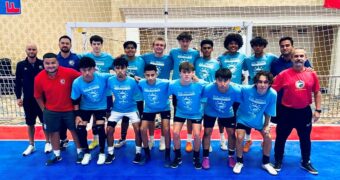




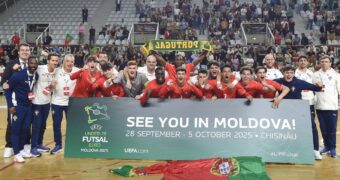
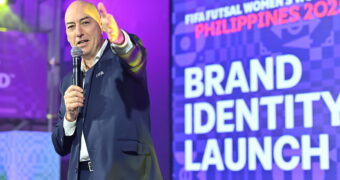

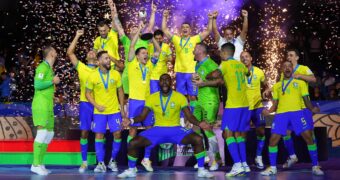
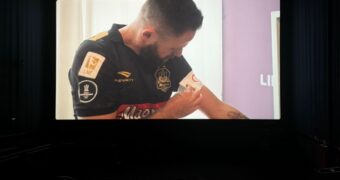



![Validate my RSS feed [Valid RSS]](https://www.futsalfocus.net/wp-content/uploads/2020/01/valid-rss-rogers.png)

